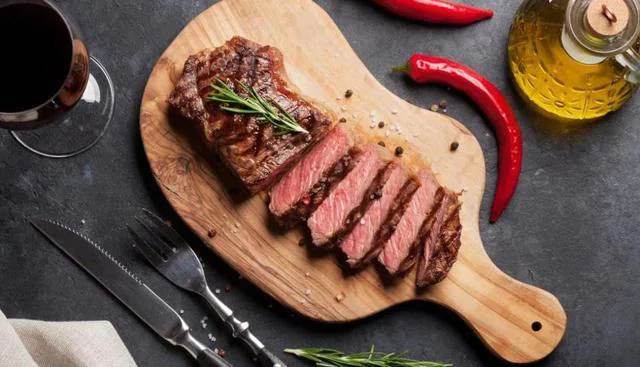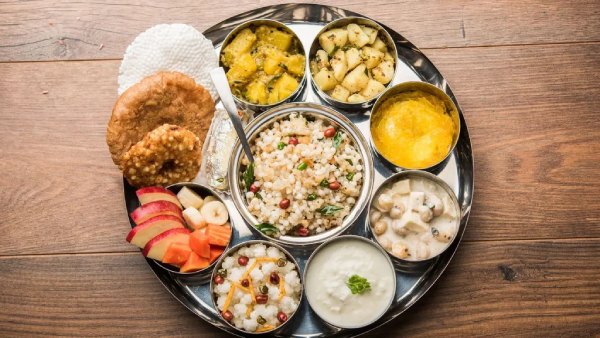Crucial Roles of Iron in the Body
Iron serves essential functions in the body, contributing to the production of haemoglobin and myoglobin, both critical for ensuring that vital organs, including the lungs, receive an adequate supply of oxygen. According to a report from the US-based National Library of Medicine, the Recommended Dietary Intake (RDI) for iron is 8 mg for adult men and 18 mg for adult women. Notably, iron plays a pivotal role during pregnancy and lactation for women. The Harvard School of Public Health suggests that pregnant women should consume approximately 27 mg of iron, with an RDI of 9 mg for lactating mothers. The most effective way to maintain optimal iron levels is by incorporating iron-rich whole foods into your diet.
Health Benefits of Iron
- Blood Production: A substantial portion of the body’s iron, around 70 percent, resides in the blood, primarily in the form of haemoglobin and myoglobin within the muscles. As a result, a deficiency of ferritin (iron) can directly impact an individual’s energy levels, as noted in a medical report from the University of California San Francisco (UCSF) Health.
- Anemia Management: Anemia is characterized by low levels of the protein haemoglobin in red blood cells, falling below the recommended threshold. Reduced haemoglobin is often a direct consequence of iron deficiency, potentially leading to symptoms like shortness of breath, dizziness, headaches, and irregular heartbeats.
- Enhanced Athletic Performance: Myoglobin, responsible for transporting oxygen to the muscles, significantly influences an individual’s endurance, stamina, and overall immunity. Achieving optimal iron intake is particularly critical for athletes, including menstruating or pregnant women, to maintain peak performance, according to Verywell Health.
Top Iron-Rich Foods
- Red Meat: Red meat is one of the most readily absorbed sources of iron that meets the body’s mineral requirements. A 100-gram serving contains approximately 2.7 mg of iron, equating to around 15 percent of the RDI. Additionally, it is rich in protein, zinc, selenium, and B vitamins.
- Fish and Shellfish: Tuna, sardines, mackerel, and shellfish are varieties of fish with significant iron content. For instance, about 85 grams of canned tuna contain approximately 1.4 mg of iron, equivalent to 8 percent of the RDI.
- Spinach: A leafy vegetable rich in iron, spinach is an excellent source of this essential mineral for vegans and vegetarians. Half a cup of boiled spinach provides 3 mg of iron, which is equivalent to 17 percent of the RDI. It also boasts high levels of vitamin C, enhancing iron absorption.
- Legumes: In addition to being rich in folate, magnesium, and potassium, cooked black beans, for instance, offer around 1.8 mg of iron in an 85-gram serving, making up 10 percent of the RDI. Cooked lentils, on the other hand, contain about 37 percent of the RDI in a 195-gram serving, as reported by Healthline.
- Broccoli: A 156-gram serving of broccoli supplies approximately 1 mg of iron, making up 6 percent of the RDI. Other vegetables from the cruciferous family, such as cauliflower, Brussels sprouts, kale, and cabbage, offer similar nutritional benefits.
- Tofu: Tofu is a popular and valuable option for vegans, providing around 4 mg, or 19 percent of the RDI, in a 126-gram serving. The US Department of Agriculture also highlights that tofu is rich in protein and essential nutrients like calcium, magnesium, and selenium.
Delicious Iron-Rich Recipes to Explore
For those looking to incorporate more heme and non-heme iron into their diet, here are some enticing recipes to try at home:
Precautions when Consuming Iron-Rich Foods
While vegetables, fruits, and meats offer excellent sources of dietary iron, supplements can be an option for ensuring sufficient iron intake in cases of deficiency. However, it’s essential to be cautious about the dosage, especially if iron-rich foods are a part of your regular diet. Excessive iron intake can lead to indigestion, stomach discomfort, and the generation of free radicals, potentially causing harm to vital organs.
The information contained in this post is for general information purposes only. The information is provided by The Advantages Of Iron For Health And Iron-Enriched Foods To Include In Your Diet and while we endeavour to keep the information up to date and correct, we make no representations or warranties of any kind, express or implied, about the completeness, accuracy, reliability, suitability or availability with respect to the website or the information, products, services, or related graphics contained on the post for any purpose.


